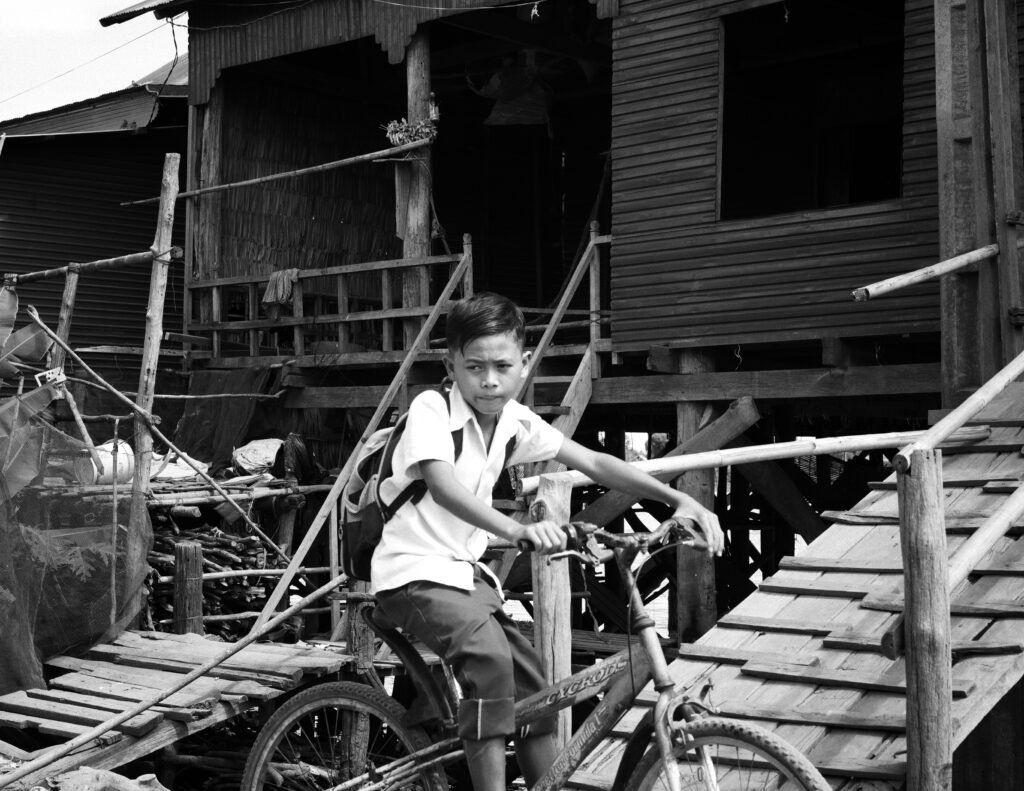
At first light, when the mist still clings low to the water and the stilt houses cast long, skeletal shadows across the mudflats, a boy named Veha rides his bicycle along the brittle edge of Tonlé Sap. He is eleven.
Skin darkened by sun, feet dusted white with dry clay. His school shirt is two sizes too big and missing a button near the collar. His shorts are held up with a frayed blue cord. One slipper is torn; the other, gone entirely. But the bicycle—rusted, too tall, its chain whispering like reeds—is his most precious thing. He pedals standing up, weaving past buffalo dung, empty crab traps, and chickens scratching under bamboo stilts. A plastic bag holds his only book, a pencil, and a packet of rice with salted fish wrapped in banana leaf—his lunch if he doesn’t eat it on the way.
Each morning, he makes this ride—four kilometers of dust and cracked road—to a floating classroom tethered near the mangroves. In the rainy season, the path becomes a river. Then he paddles. In the dry, the wheels sink into baked ruts. But still, he goes. He does not complain. He hums.
A pop song, a Buddhist chant, a melody his older brother used to sing before he left for Phnom Penh and never came back. Veha dreams of being a teacher. Or a boat mechanic. Or just someone who gets to wear shoes every day. Sometimes, he stops to help an old woman carry water jugs from a hand pump. Sometimes, he waits for a classmate with a broken sandal. He always arrives late—but he always arrives.
In the afternoon, after lessons under corrugated roofing and blackboards that bend in the wind, he rides home slowly, tired but lit with something more than sweat: hope, fragile and real, like the water birds that skim the lake’s surface just before sunset. Back in the village, his mother waits at a fire made of dry rice husks. She asks what he learned. He grins.
Says, “Today I read the word for sky.” Then he looks up, just to make sure it’s still there.